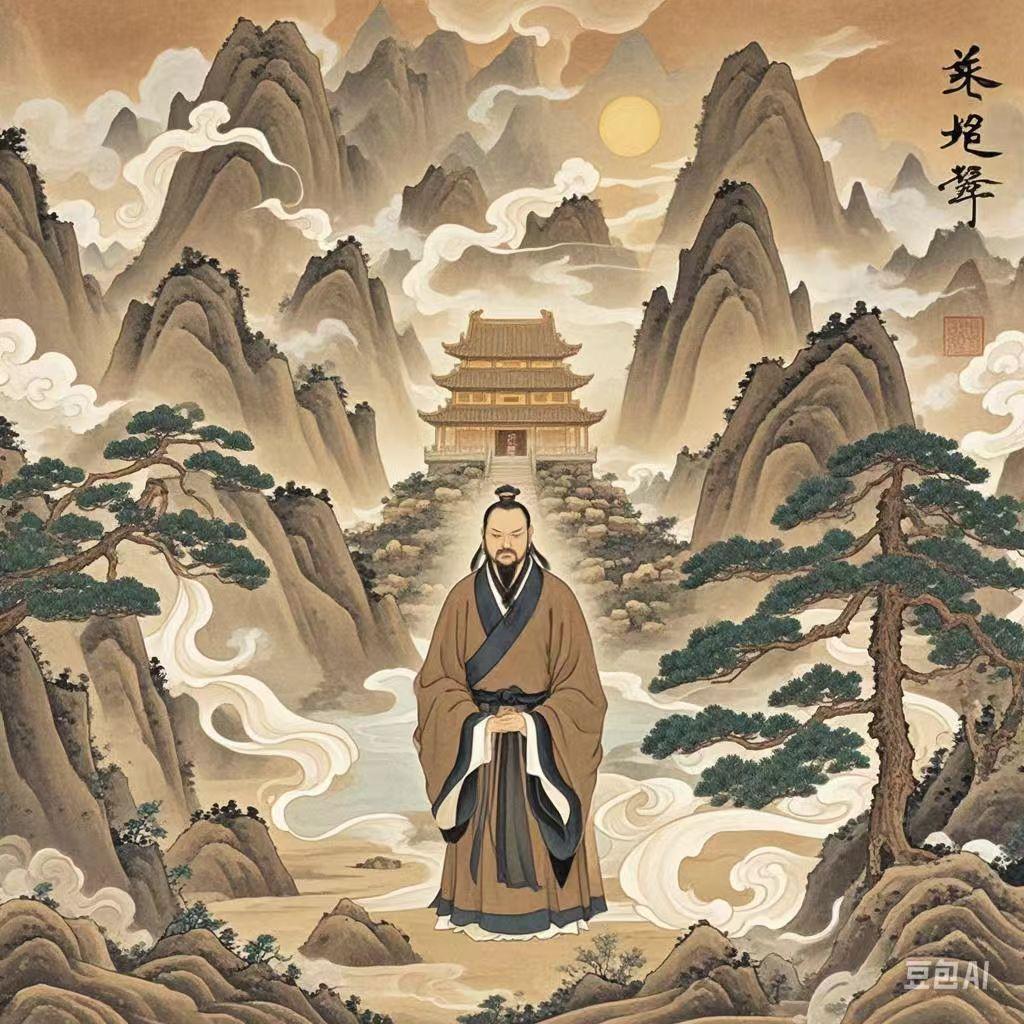In ancient China, there was a young man named Yang Jun, who lived in a dense mountain forest. From a young age, he was drawn to the wisdom of Taoism. He had heard the words of the Taoist master Laozi: "The Tao that can be told is not the eternal Tao; the name that can be named is not the eternal name." Yang Jun understood that the world’s phenomena were impermanent, and that all change was rooted in the "Tao." If a person could align with the Tao, they could turn misfortune into fortune and succeed in all endeavors.
However, the young Yang Jun faced a great challenge. The nearby mountain village was suffering from a poor harvest and food shortages, leading to frequent conflicts and even wars with neighboring villages. The village elders, recognizing Yang Jun’s exceptional abilities and deep understanding of Taoist wisdom, elected him as the village leader, hoping he would guide them through the crisis and resolve the disputes.
Yang Jun accepted the responsibility but did not rush into battle. He knew the Taoist principle of "wu wei" (non-action), which suggests that one should not impose themselves on the world but instead harmonize with it. As Laozi wrote in the Tao Te Ching, "Governing a large country is like cooking a small fish," meaning that leadership should be gentle and measured, without over-interfering.
Instead of resorting to direct conflict, Yang Jun chose to open a dialogue with the leaders of the opposing village. Wearing a simple Taoist robe and carrying a small flag with the words "旗开得胜" ("Victory at the Start") boldly inscribed, he symbolized the coming triumph, not through force, but through wisdom and alignment with the Tao. The flag’s vivid colors represented light and justice, and its message was clear: true victory would come from wisdom, not violence.
At a peace meeting, Yang Jun sat down with the opposing leader and engaged in a long conversation. He spoke of Taoist principles, explaining how people should live in harmony with one another rather than through violence. He emphasized that true victory lies not in conquering others but in achieving inner peace and wisdom.
Initially, the opposing leader did not fully understand Yang Jun’s words, dismissing them as idealistic theories. However, after a long discussion, the opposing leader began to reflect on his actions. He realized that the conflicts had not brought any real benefits, but only more suffering to both sides. In the end, he decided to reconcile, and the two sides reached a peace agreement.
When Yang Jun returned to his village, the villagers celebrated with a grand ceremony. The flag flew high in the wind, symbolizing the "Victory at the Start" — a victory achieved not through force, but through the guidance of wisdom and the calm of the heart, which resolved the crisis and ushered in a new era of peace.
Standing at the village entrance, Yang Jun gazed at the fluttering flag, feeling a deep sense of accomplishment. He understood that true victory does not come from war or external achievements, but from the realization and application of inner peace and wisdom. All of this was rooted in the Taoist principle of "Tao follows nature" — to go with the flow, to act without force, and ultimately to achieve harmony and victory.
From that moment on, Yang Jun became a symbol of Taoist wisdom. Whether in times of crisis or tranquility, he always carried with him that flag, symbolizing wisdom and victory, guiding people toward a brighter, wiser future.
This story reminds us that victory is not just about external accomplishments but is also about achieving inner balance and the manifestation of wisdom. The Taoist teachings of following the natural order, avoiding conflict, and aligning with the Tao are the best paths to true victory.Victory at the Start Mobile Wallpaper。I recommendhttps://mall.taoismtop.com/%E6%97%97%E9%96%8B%E5%BE%97%E5%8B%9D-%E6%89%8B%E6%A9%9F%E5%A3%81%E7%B4%99



